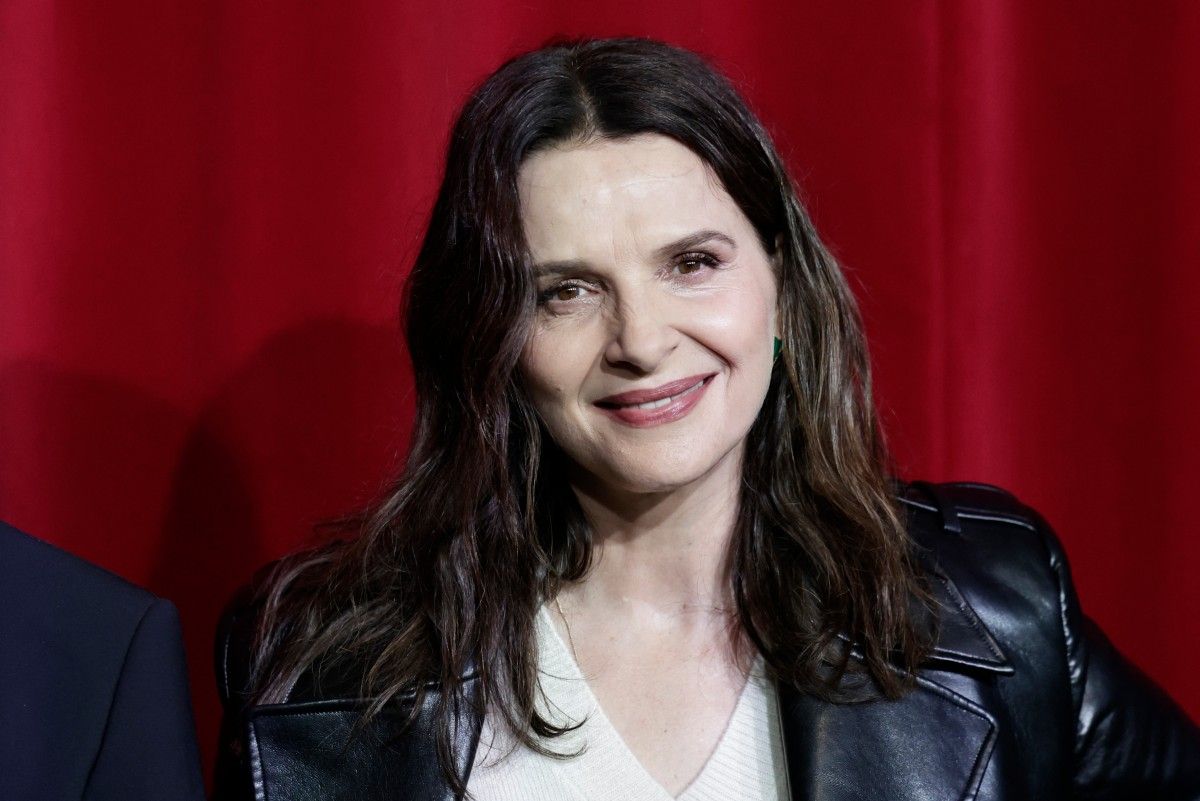
Juliette Binoche embodies a rare kind of intensity—a calm, powerful presence touched by mystery that transcends roles, trends and eras. This year, she returns to the Croisette as the president of the jury for the 78th Cannes Film Festival, kicking off on May 13. It's a symbolic homecoming, as she won the Best Actress award in Cannes in 2010 for Abbas Kiarostami’s Certified Copy.
There’s a unique energy that Juliette Binoche brings to her performances, a quiet force infused with enigma. On May 13, 2025, she’ll step into the spotlight once again, this time to lead the Cannes jury.
Born in Paris in 1964 into a family of artists—her father a mime and sculptor, her mother an actress—Binoche’s path was almost destined. After training at the Conservatory, she quickly rose through the ranks of French cinema. Her breakout came with Téchiné’s Rendez-vous in 1985, followed by iconic roles in Leos Carax’s Bad Blood and The Lovers on the Bridge. International acclaim soon followed with The Unbearable Lightness of Being, Damage and Kieslowski’s Three Colors: Blue. In 1997, she won the Academy Award for Best Supporting Actress in The English Patient, becoming the second Frenchwoman—after Simone Signoret—to be honored in Hollywood.
Juliette Binoche has always embraced a wide spectrum of roles, moving seamlessly between large-scale productions and intimate indie films, driven by a singular authenticity. From Hidden and Summer Hours to Camille Claudel 1915 and Between Two Worlds (2022), she continues to captivate. Determined to master every role, she even learned English and perfected her accent. Fiercely committed, she’s spoken out against violence in the cultural, human and geopolitical arenas. In Both Sides of the Blade, she portrays a woman confronting personal and political tensions, referencing Beirut and its port explosion in a fictional radio broadcast—an act of artistic and moral courage.
The Art of Acting
For Juliette Binoche, acting is far more than technique. She gives herself fully to every role, with a raw naturalism. Whether through a piercing glance or a subtle bodily tremor, she lays bare the raw truth of characters caught in emotional or existential turmoil.
Her performances are marked by nuance, abrupt turns and emotional depth, lending weight to every feeling she expresses. Whether in drama or comedy, she’s known for her range and precision. She takes on ambitious cinematic works as readily as personal stories, always grounding them in truth.
On screen, her physical expressiveness and emotional palette immerse the audience completely. Her acting is built on subtext, embodied emotion, precise gestures and eloquent silence. But above all, it’s grounded in presence. She commits without holding back, mining each role for emotional truth. Her authenticity is powerful—she doesn’t just act, she is. Her sensual, honest portrayals reveal the many faces of womanhood and elevate them.
A Long Line of Legendary Directors
Over the years, Juliette Binoche has collaborated with a remarkable range of renowned directors, each known for a distinct cinematic voice. Her career is shaped by bold choices and artistic confrontations.
Jean-Luc Godard: Hail Mary (1985)
Jacques Doillon: Family Life (1985)
André Téchiné: Rendez-vous (1985), Alice and Martin (1998)
Leos Carax: Bad Blood (1986), The Lovers on the Bridge (1991)
Philip Kaufman: The Unbearable Lightness of Being (1988)
Louis Malle: Damage (1992)
Peter Kosminsky: Wuthering Heights (1992)
Krzysztof Kieślowski: Three Colors: Blue (1993), White (1994), Red (1994)
Jean-Paul Rappeneau: The Horseman on the Roof (1995)
Anthony Minghella: The English Patient (1996), Breaking and Entering (2006)
Chantal Akerman: A Couch in New York (1996)
Diane Kurys: Children of the Century (1999)
Lasse Hallström: Chocolat (2000)
Michael Haneke: Code Unknown (2000), Hidden (2005)
Patrice Leconte: The Widow of Saint-Pierre (2000)
Abbas Kiarostami: Certified Copy (2010)
Olivier Assayas: Summer Hours (2008), Clouds of Sils Maria (2014)
Bruno Dumont: Camille Claudel 1915 (2013), Slack Bay (2016)
David Cronenberg: Cosmopolis (2012)
Hou Hsiao-hsien: Flight of the Red Balloon (2007)
Isabel Coixet: Nobody Wants the Night (2015)
Tran Anh Hung: The Taste of Things (2023)
A Vision Rooted in the World
For Juliette Binoche, acting is a way of being present in the world—a form of emotional and sensory exploration in search of the “truth of the moment” (Libération, 2024). She gives herself fully to each role, with trust and vulnerability: “Acting isn’t performing—it’s being moved through” (Libération, 2024). She believes that emotions must be received, not manufactured. “You don’t play a character—you allow them to exist within you,” she told Télérama in 2023. To her, acting is organic, a seamless extension of the self.
She also sees art as a means of connection, inseparable from the real world and society. “I don’t believe in separating the personal from the political. Acting is taking a stand—it’s putting your whole being on the line” (Le Monde, 2023). She’s lived this idea, even physically: during an underwater shoot, she nearly drowned. “That day, the limits I hadn’t yet defined became suddenly clear,” she recalled in a 2024 parliamentary testimony.
She also faced more insidious challenges. In the 1980s and 1990s, she endured countless nude auditions, sexist remarks and advances from directors and agents. “I’m relieved now to hear people—both women and men—finally speaking out about the abuse they’ve experienced,” she told Libération in 2024.
With Juliette Binoche, acting is never artificial. It’s a quest for truth. And how many versions of truth lie in the complexity of a human being…

Comments